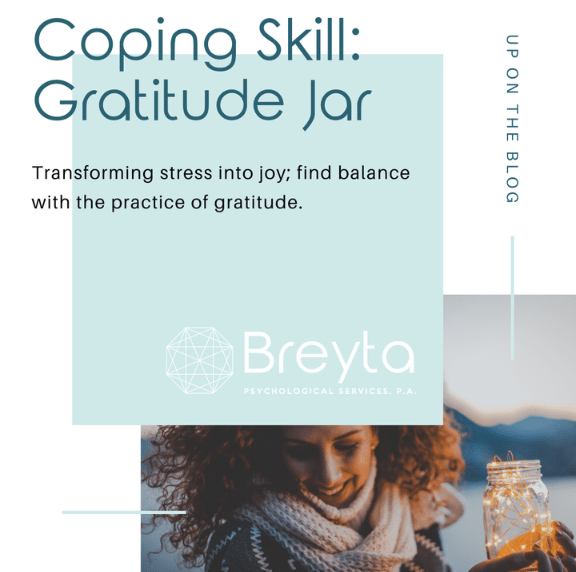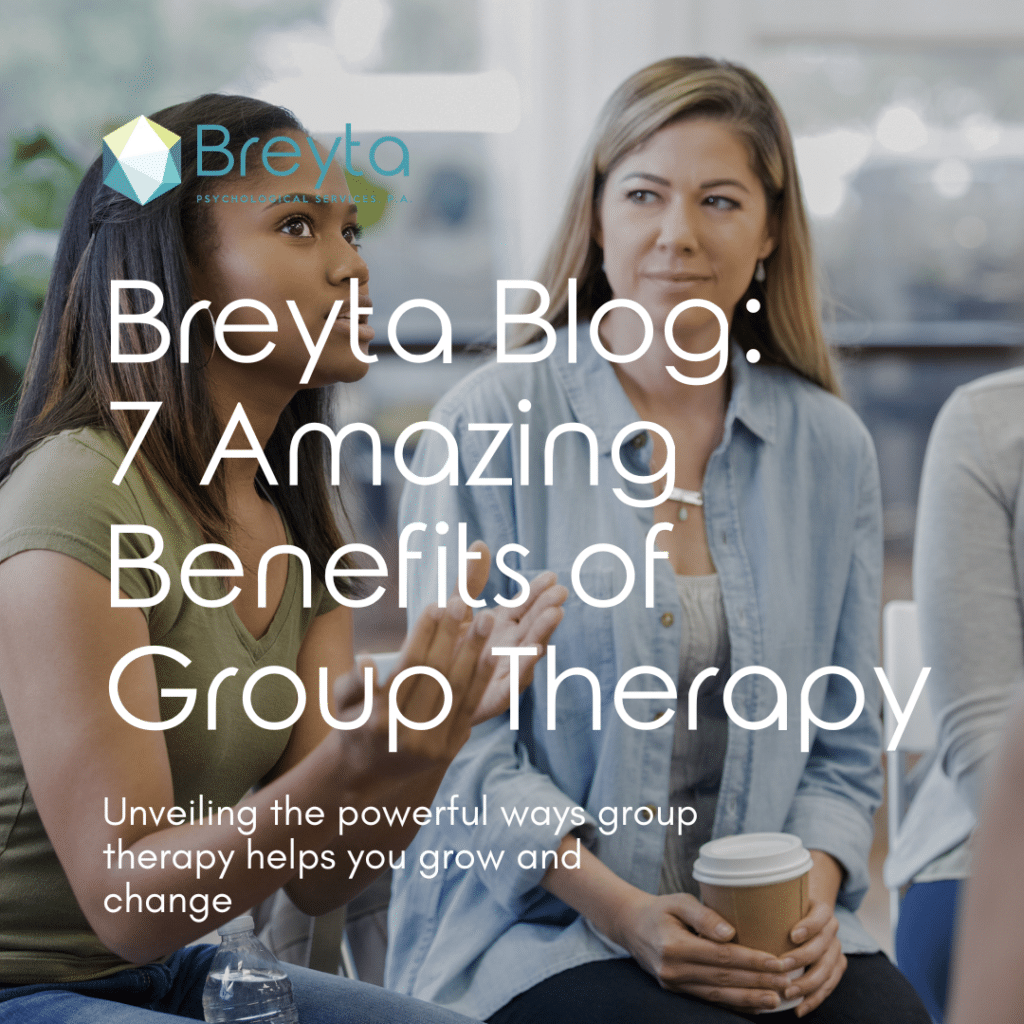by Ameenah Ikram, Psy.D.
Understanding Holiday Emotions
Exploring the spectrum of feelings
As the holiday season approaches, it’s normal to experience a range of emotions. For some, it may be an exciting and long awaited time to unwind, take a break, and celebrate with family and friends. For others, this time of year may be met with missing loved ones, feeling stressed, or perhaps even navigating seasonal depression. For most, the holiday season is a time of self-reflection about the good, the bad, and the ugly that has happened over the past 12 months.
When Good Intentions Turn Into Pressure
Through the self-reflection process, we often desire to ring in the new year with a new positive spirit or energy, and formulate new goals in hopes to achieve a greater sense of personal success than the year past. While well intentioned, oftentimes this burst of motivation may turn into added self-pressure to come up with lofty New Year’s resolutions. You may be wondering, what’s wrong with the burst of motivation? What’s so bad about New Year’s resolutions? Like with many things in life, we often get into a rat race of biting off more than we can chew, and this analogy no less applies to New Year’s resolutions. In theory, New Year’s resolutions seem great, but when they turn into unsustainable goals as they often do, it’s easy to struggle with keeping up with them. By the time January is over, the idea of “new year, new me” fades to the backside.
Maintaining Wellness During Tough Times
When things get busy and hard, that is usually the time where all the healthy habits get kicked to the curb. Perhaps you may start to order carry-out more often than cooking dinners at home, or maybe instead of going on the treadmill every day after work like you said you would, you start to slack off and watch TV on the couch instead. When we get into such ruts, not only do our behaviors become less positive, but our thought patterns become more gloomy as well. During hard weeks, unhelpful thinking patterns may take over your brain, such as, “I never get enough sleep anymore,” “nothing ever gets done around here,” “I’m not good enough,” “everyone else has it so easy,” and the list goes on. Coping skills can be used to not only help individuals get out of, but also safeguard against, dark stagnant periods. Research suggests that by implementing easy coping skills involving both mind and body each week, individuals can achieve long-term results of wellness.
The Gratitude Jar: A Mindfulness Tool
Simple Steps to Embrace Positivity

An easy way to help curb your brain and body away from negativity, is to utilize the Gratitude Jar coping tool. A Gratitude Jar is a useful technique that provides you a simple way to practice mindfulness, and remember positive things that happen throughout the week (even during chaotic or stressful ones). Using a Gratitude Jar is simple, and it is something that can be used by individuals of all ages. All you need is a jar (mason jars work great), a writing utensil, and blank slips of paper. It’s important that you decorate the jar to make it more appealing and welcoming, so that you remember to use it (ribbons, stickers, colored sharpies, and press on jewels are just some great examples of what you can use to decorate yours). Next, it’s important to place the Gratitude Jar in a place you often frequent (perhaps on your vanity, the kitchen windowsill, on your office desk, or on your nightstand).
Fostering Positivity Through Statements
Now for the fun part! Each day or week, you can write down one or more statements on blank slips of paper which describe what you are grateful for, and then place the slips into your special and personal Gratitude Jar! Some examples of statements are: “ Today was special because my coworker made me laugh,” “I appreciate my friend for calling me when I was feeling down,” “I am proud of accomplishing the hard task my boss assigned me,” “I am thankful my partner unloaded the dishwasher and mopped the floor before I got home,” and “I felt happy today seeing my child achieve a new milestone.” The statements can be about whatever made you feel good that day or week, no matter how big or small! Then, on the last day of each month, you can read the written statements you have been collecting each day or week, and reminisce on the positives that have happened.
Regular Reflection Has Lasting Benefits
Slowly but surely, getting into the habit of slowing down and reflecting on the positives in life can deepen your overall sense of appreciation, reduce self-defeating attitudes and thoughts, increase feelings of self-worth and self-esteem, and also improve overall mood and physical health. Practicing this coping skill is quick and easy, and most importantly, sustainable long-term. You can be a “new you” any day of the year, by reflecting on the simple joys each day brings. This small but beneficial skill can make life go from looking like a glass half empty, to a glass half full of love, happiness, and overall wellness. Try it today!
Creating Your Gratitude Jar
Supplies Needed:
- 1 Gratitude Jar per person (mason jars or old peanut butter jars work great!)
- Art supplies to decorate the jar (ribbons, stickers, colored sharpies, and press on jewels work great)
- Gratitude Slips (blank slips of paper or slips with gratitude prompts)
- Writing utensil
PS: Want to take it up a notch? Check out how to use this skill with others in your life!
Strengthening Relationships Through Gratitude
Couples Connection: Building Together
Couples: Perhaps you have recently noticed a patch in your relationship which feels a little stagnant, but vacations and lavish date nights aren’t in the cards right now. The Gratitude Jar coping skill can be a fun tool you can use to reconnect with your partner. You and your partner can each decorate a Gratitude Jar together, and begin to write something about them that you are grateful for every day or week. Then, at the end of the month, you and your partner can plan a date night to review what you wrote about one another. This can help couples take a break from all the chaos life throws, and encourage intentional efforts to re-engage.
Family Bonding: Sharing Together
Children: Incorporating the Gratitude Jar activity with your children can be a great and sustainable family bonding experience. Each family member can get a jar, and decorate them together during a weekend family night. At the end of each month, or even at the end of each week, you and your family can go around in a circle and share your gratitude statements at the dinner table once everyone is done eating. This can be a great method for the family unit to hold one another accountable for practicing mindfulness, cultivating a sense of thankfulness, and learning positive perspectives on life.
Dr. Ameenah Ikram is a postdoctoral fellow in clinical psychology at Breyta Psychological Services. She earned her Psy.D. from Spalding University in 2023. Dr. Ikram specializes in women’s mental health, psychological trauma and PTSD, perinatal mental health, fertility issues, and multicultural mental health. You can learn more about her specialty areas, approach to care, and training on her bio page. She is highly skilled in working with emerging adult and adult clients for individual and couples therapy. If you’re interested in working with Dr. Ikram, contact us today to schedule a complimentary consultation or schedule your first session.




